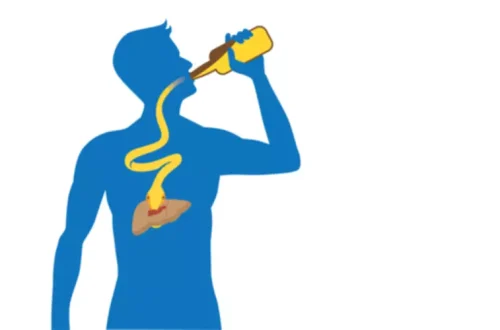
Remember, your brain is recovering, and these effects are often temporary. Taking care of your overall health can help to support your brain and mental clarity as you move forward. If you have any concerns, talking to a healthcare professional is always a good idea. During alcohol withdrawal, the brain undergoes chemical imbalances that disrupt normal cognitive processes. The chronic consumption of alcohol can lead to brain atrophy, causing oxidative stress and cell injury.

You may be covered by insurance for addiction treatment.

There are a number of things you can do to help reduce stress levels. You may also want to consider taking a nap during the day if you are feeling particularly tired. This organ is responsible for filtering toxins from the blood and converting nutrients into energy. There are several popular apps for a brain workout, including Fit Brain, which features exercises that target emotional intelligence and self-awareness. Cut yourself off from caffeine by six hours before bedtime, and drink plenty of water and other hydrating beverages.
- When you work with us, our knowledgeable medical team can create tailored treatment programs to fit your needs.
- Brain fog affects the cognitive abilities of a person and can cause confusion, forgetfulness and sometimes even compromise motor functions.
- They understand how alcohol affects the brain, including alcohol-induced neuroinflammation, and can help you on your path to alcohol recovery.
- This article will dive deeper into what brain fog is, how it’s related to alcohol, what the symptoms of it are, and much more.
Be Active and Exercise Regularly
A person’s brain chemistry can change dramatically through alcohol use. Alcohol impairs GABA, https://ecosoberhouse.com/ a calming neurotransmitter that reduces anxiety and stress levels in the brain. Alcoholics have been shown to have lower levels of GABA receptors than those who are not alcoholics (R). Many alcoholics self-medicate their condition by using benzodiazepines as supplements for their lowered levels of GABA neurotransmitters.

Broken and Bleeding: Emotional Trauma and Substance Use Disorder
- Studies reveal that excessive drinking increases levels of inflammatory markers such as cytokines, which can lead to impaired brain function and heightened depressive symptoms.
- Alcohol messes with your brain’s neurotransmitters, the chemical messengers that help your brain cells talk to each other.
- Alcohol consumption can cause brain fog due to its impact on basic cognitive processes and the central nervous system.
- These people usually require professional medical attention to be treated effectively.
- GLP-1 agonists might make neurons—nerve cells in the brain—more resilient.
On top of its essential role as a chemical in the brain, dopamine also acts as a hormone. It’s made by the adrenal gland, just like epinephrine and norepinephrine – the hormones that act behind your fight, flight, or freeze response. This feel-good chemical does a lot more than just make you feel rewarded. The amount you produce affects how you think, work, alcohol brain fog and even sleep.
- In addition to getting some sunlight, another great way to get rid of brain fog is to spend time in nature.
- Establish a consistent sleep routine and create a sleep-friendly environment to promote better sleep.
- The link between alcohol and brain fog is also related to alcohol’s impact on mental illnesses.

So, if you’re constantly feeling foggy, even when you haven’t been drinking, it’s a good idea to chat with a doctor. Alcohol messes with your brain’s neurotransmitters, the chemical messengers that help your brain cells talk to each other. This can lead to slower thinking and trouble focusing – classic signs of brain fog. Thankfully, there are plenty of ways that you can do to treat brain fog naturally and alcohol addiction safely, and enhance your brain function, such as the ways we listed above.
- At Evolve Indy, we strive to see our patients succeed in their journey to recovery from alcohol abuse and addiction.
- Eating a balanced diet and staying hydrated are essential for maintaining brain health and keeping brain fog at bay.
- Brain fog during withdrawal does not differ substantially from brain fog during addiction.
- Finally, alcohol disrupts communication between the brain’s neurons, which causes more global side effects like loss of balance, memory, speech, and judgment.

Chronic heavy drinking can cause a number of physical and functional changes, such as abnormalities in neurotransmitter systems and the shrinking of brain tissue. These changes may increase our vulnerability to neurological disorders, including dementia and other forms of cognitive decline, leading to a decrease in Sobriety the quality of life in general. Yes, chronic alcohol use can lead to long-term cognitive impairment, including persistent brain fog. Over time, excessive alcoholconsumption can damage brain function and lead to conditions like alcohol-related cognitive decline. The effects of withdrawal will place a lot of stress on the body and mind.
